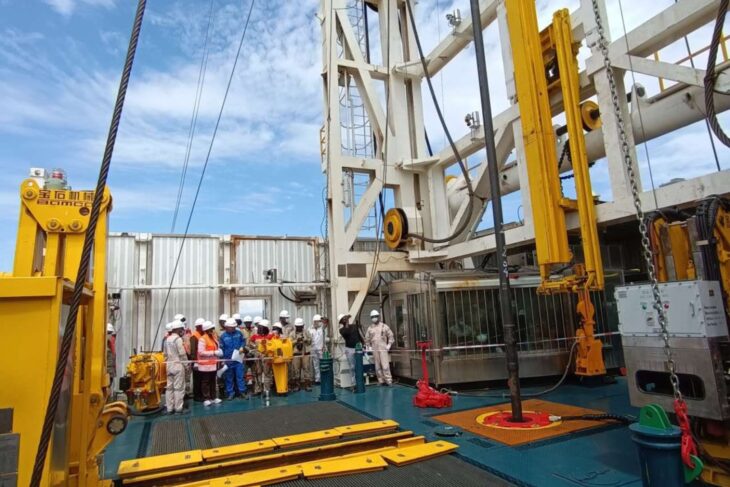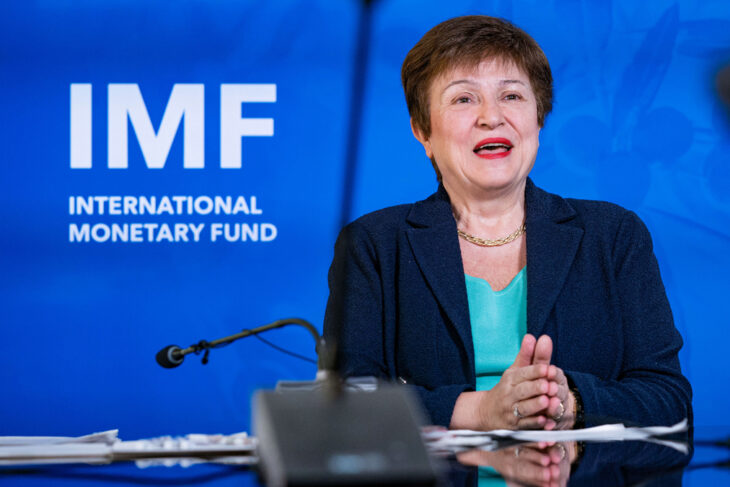
Although there could still be some nostalgic feelings in certain quarters about Nigeria”s failings in the journey to optimising its economic and industrial potential as a leading crude oil producer in the world, no one can really discountenance the genuine efforts by some government agencies to enlist it in the league of countries smarting in global competitiveness.
With growth prospects and natural resources unrivaled by most countries at independence in 1960, expectations of Nigeria emerging a global economic powerhouse in the mould of the Asian Tigers was so overwhelming that no one doubted the probability of the country becoming a black superpower.
But all those dreams were shatered very early in history when massive importation of manufactured goods and high level official corruption became the order of the day, leaving the lofty dreams of greatness to become a mirage as successive administrations failed to pursue set developments targets amid rising official corruption.
As an economy entangled in the paradox of “Dutch Disease”, a shorthand way for describing a situation that pervades a nation when the burst of good news or developments like fresh hydrocarbon finds, harms its broader economic objective, things began to fall apart.
It began with an avalanche of foreign capital inflow targeting to exploit the newfound resource that later left the people without a strategic vision for sustainable development of the economy.
For Nigeria, this paradox of Dutch Disease lived with the people for many years from the commercial discovery of oil in the Niger Delta.
With massive global investment coming into the secor in the sector, Nigerian government and its private sectors operators neglected agriculture and other activities in the real sector and left the economy vulnerable and largely dependent on imported goods and services.
It was therefore not surprising that the nation’s financial sector regulators began thinking out of the box to create policies to rescue the economy from self destruction through its overwhelming dependency on imported goods.
From available information, the decision of the CBN in June of 2015, to restrict foreign currency access to companies for the import 41 categories of items to stop a slide of the naira was a deliberate effort to strengthen the Small and Medium Enterprises sector by empowering them to takeover the production of goods and services under the 41 items listed as not valid for foreign exchange.
The ban was part of a long-term plan by President Muhammadu Buhari to encourage local manufacturing, amid risk of pushing the economy into recession after growth declined in the second quarter of that year as foreign reserve will now be utilised strictly for diversification of the economy, rather than encouraging more dependence on foreign food import bills.

Following the implemention of the policy in 2015, Nigeria’s total import according to reports by the National Bureau of Statistics began declining with the value of imported products dropping to $52.33 billion, from the $61.54 billion spent on imports in 2014.
Also in 2016, Nigerians imported foreign goods worth $35.24 billion into the country, representing a decline of 32.7 per cent from the total amount imported in 2015 ($52.33 billion).
Simultanously, CBN’s investment in domestic rice production ballooned local production through the Anchor Borrower Scheme amid criticism for not taking the low capacity of local farmers into consideration.
Not withstanding these distractions, the apex bank’s policies in these direction created ample opportunities for most SMEs to expand their capacities in the realisation that they remain the engine room of developing economies.
In 2015, Nigeria spent nearly $2.9billion (£2.4bn) and by 2017 that had risen to $4.1billion, According to the NBS.
Nigeria’s total import as at the end of 4th Quarter of 2015 was N1,576.4 billion, coRefined Petroleum – $10 billion, Wheat – $1.6 billion, Non-fillet Frozen Fish – $641 million, Rubber Tires – $393 million, Raw Sugar – $384 million.
However, taking crucial lessons from other emerging economies that built modern economies on the Small and Medium Enterprises sector, CBN in keeping with its mandate of maintaining price and exchange rate stability also intervened massively in agricultural sector by according due recognition to the SMEs and MSMEs sub-sectors through the provision of working capital and other forms of credit facilities to revitalise the operations of moribund entities and inject fresh capital into green field projects with expansive job creation capacity.
One can say without fear of contradiction that the Central Bank of Nigeria (CBN) as banker to the Federal Government and its chief Economic aggregator has in the last six years of Mr Godwin Emefiele, as Governor pursued policies targeted at lifting the SMEs sector to a place of prominence, where its contribution to the nation’s GDP can be substantially be enhanced.
Some of its policy packages for the sector include the rejuvenation of N220billion Micro, Small and Medium Enterprises Development Fund, where 60 percent of its intervention fund was reserved for women entrepreneurs and the N1trillion funding programmes being implemented for the Real Sector Support Fund to boost local manufacturing, comprising 44 Greenfield and Brownfield projects for which over N93.2 billion had already been disbursed to deserving entities.
A cursory review of some of these initiatives reveals they were being implemented in a manner that prepares the economy to withstand the frequent global economic shocks and headwinds that often hobble Nigeria’s economy any time there crashes in commodity prices.
Many have often wondered how the Nigerian economy was able to survive difficult times like the global financial crises of the 2006-2008 which triggered commodity price crashes that plunged many nations into tumultuous recession. That also included the recent COVID-19 headwinds that almost crippled the global economy.
But some economic experts who spoke to Daily Sun, attributed these survival instincts to the promptness of the Emefiele led CBN intervention policies like the N50 billion SMEs Targeted Credit Facility meant to cushion the impact of the COVID-19 on the economy, stressing that the consequences of the pandemic could have been far worse without the interventions.
Available records show that as at end of June, 2020, the CBN had disbursed N49 billion to businesses and households. A break down of the Targeted Credit Facility showed that about 80,000 operators of micro, small and medium scale enterprises (MSMEs) and thousands of families across the country benefitted from the intervention fund.
He said the fund was meant to support the Federal Government’s efforts to stimulate economic activities as well as help the economy avert a looming recession.
“So far, out of the N50 billion targeted credit facility for households and small businesses, we have disbursed about N49 billion. We also have other intervention funds such as the N100 billion healthcare facility, currently bring disbursed as well,” said the CBN spokesman
The scheme being financed from the CBN’s N220 billion Micro, Small and Medium Enterprises Development Fund (MSMEDF) and had earmarked about N25 million for MSMEs with benefiting households being allocated up to N3 million each based on the activity, cashflow and industry/segment size of each beneficiary.
Speaking last month while delivering the 51st University of Lagos convocation lecture, Governor Emefiele,said the bank will increase its development finance imprint to further support start-ups and Small and Medium Enterprises (SMEs) in the country.
In the lecture themed, “National Development and Knowledge Economy in the Digital Age: Leapfrogging SMEs in the 21st Century”, the CBN boss observed that increased access to finance for start-ups and SMEs was essential for the nation’s economy to grow.
He advocated that special consideration be given to the strengthening of physical and ICT infrastructure, to enable SMEs perform more efficiently and become globally competitive.
“The potential of SMEs in enhancing economic growth is hampered by limited access to finance, inadequate infrastructure and poor digital penetration.
“I urge government and the private sector to provide more support in addressing the challenges of SMEs in the country.
“Specifically, as users of new technology, I advise that policies that would incentivise the adoption of innovations that will improve SMEs competitiveness and productivity should be made,” he said.
Emefiele also called for reforms to improve human capital development through skills enhancement and proper linkage of research to the SMEs.
On July 22, 2020, the Nigeria Youth Investment Fund scheme, a N75billion 3 year intervention program designed to cater for Youths owned investments and businesses was approved by the Federal Executive Council. The NYIF is a N75 billion Naira 3-years programme created to cater for Youth-owned investments and businesses.
Commenting on the impact of the CBN intervention funding in the economy, renowned Capital Market Professor and President of the Association of Capital Market Academics of Nigeria, Professor Uche Uwaleke, in his assessment of intervention programme of the CBN said “ I would say that these interventions the CBN came up with were responsible for the quick exit of the predicted and eventual fall into the 2020 recession brought on by the COVID-19 lockdown, global supply chain disruptions and crashed crude oil prices.
The apex bank has consistently supported various ailing sectors of the economy, especially the Small and Medium Enterprises (SMEs) via intervention programmes, to realise its economic sustainability and diversification goal. Although the current administration have not yet gotten everything right, the way and manner of response by the CBN has been commendable.”
According to university don, “If you look at what happened last year when the COVID-19 pandemic happened, the CBN gave a one-year extension of a moratorium on principal repayments for its intervention facilities.”
Others laudable strategies it had so far adopted to maintain economic resilience include strengthening of the Loan to Deposit Ratio policy, which has resulted in a significant rise in loans provided by financial institutions to banking customers.
He recalled that Loans given to the private sector have risen by over 21 percent in the past year, even as the CBN engaged in other development financing activities to address the credit needs of sectors critical to improving livelihoods, reducing poverty, and promoting inclusive growth.
“I believe that the overall objective of these interventions is to promote financial inclusion in the country, tackle unemployment, insecurity and other social challenges.” Uwaleke said.
For her part, Lagos Chairman, Nigeria Association of Small Scale Industries NASSI, Gertrude Akhimien, admits that CBN initiative has been helpful, despite challenges facing its implementation.
“I believe that the overall objective of these interventions is to promote financial inclusion in the country, tackle unemployment, insecurity and other social challenges. “The idea of providing funding to SMEs to carry out their businesses had been lacking for years, as conventional banks seem not willing to provide them loans without collaterals and other requirements. So the CBN intervention funding has become a game changer “ she argued
“At the start it was easy but with time, some bottlenecks set it. For the past two years now and with the setting in of the COVID -19, there has been some inexplicable delays in releasing funds for SMEs that applied.”
There is a back log of SMEs still awaiting funds to be realised to them and do the CBN needs to review the process of accessing these funds so that overall objective would be achieved. As for the idea as demonstrated concept of intervention funding, it is an excellent one. I commend the CBN governor for this beautiful initiative.” This is something that we recommended about years ago, but it has not been implemented.
The NASSI boss said the Emefiele led apex bank was doing a good job, but advised that the implementation of it’s policies needs to be fast tracked for better results. According to her, frequent reviews of its policies will enable it to identify areas of problems regarding access to these fund even as noted that the percentage of impact is still pretty low, hence the need for a review. “Look at the system, implementation process and see where they can be corrected, i believe the impact will be higher,” she concluded.
Also commenting, Mr Chidi Ajaegbu, CEO, Heritage Capital Markets Ltd called for a verification of those getting the intervention funding, arguing that setting up an independent body or credible third party certification or validation of this interventions would go a long way to correcting some of the wrong perceptions some people are having about the funding programmes.













